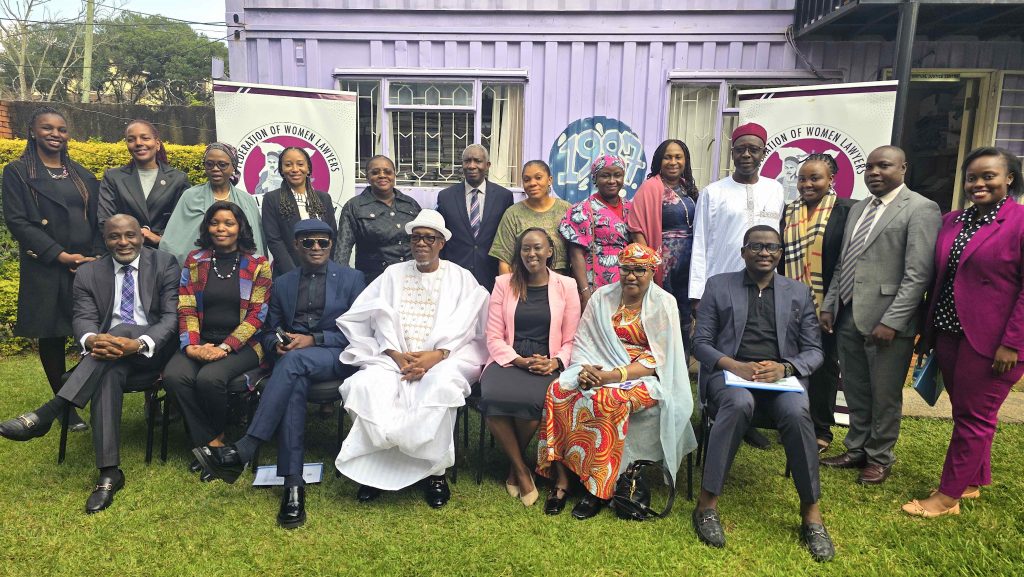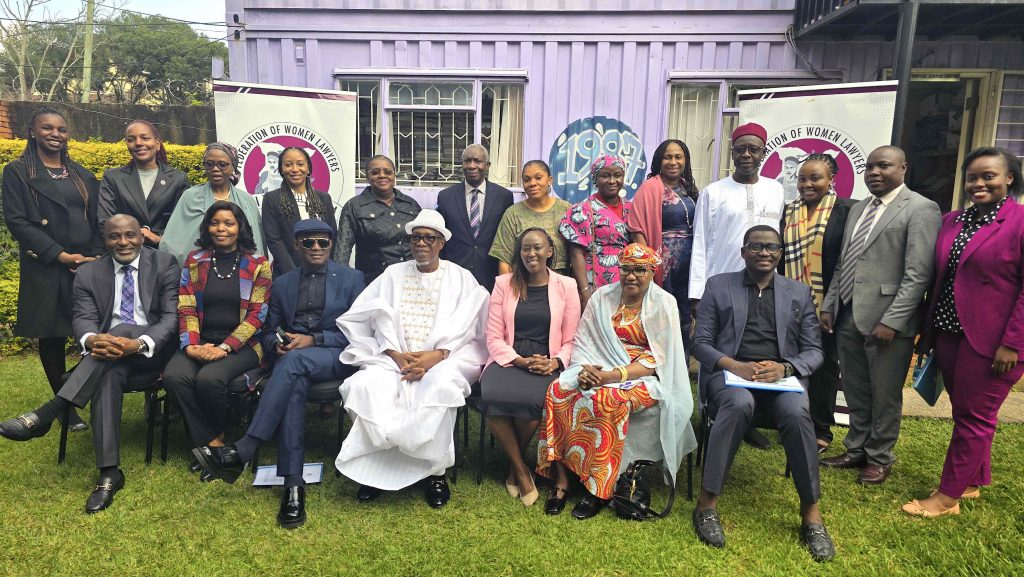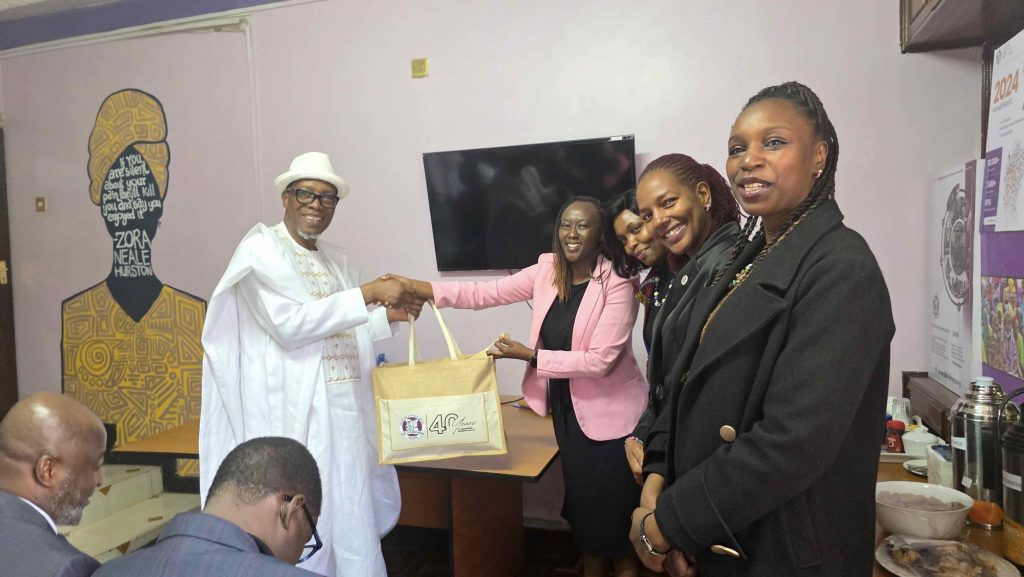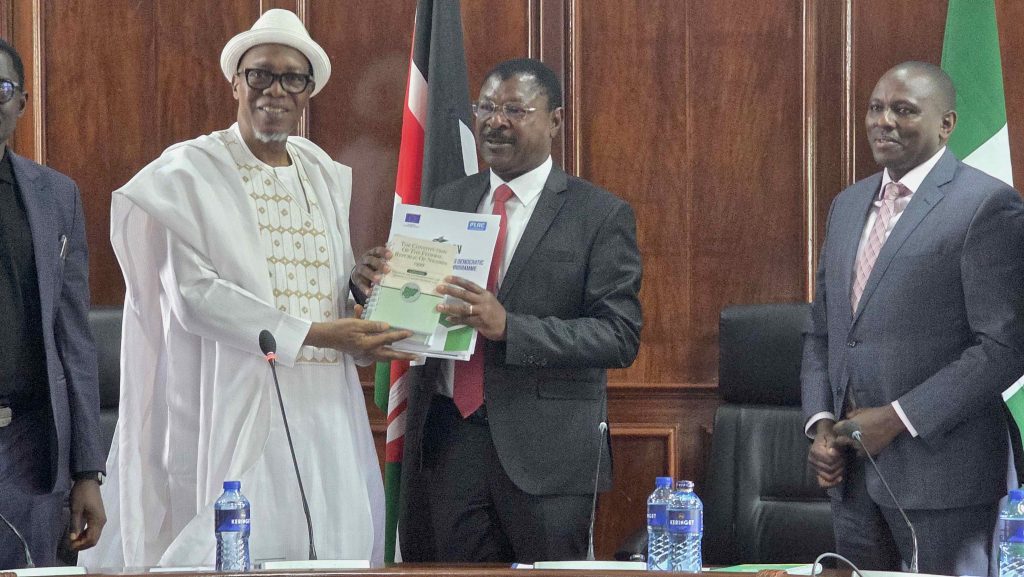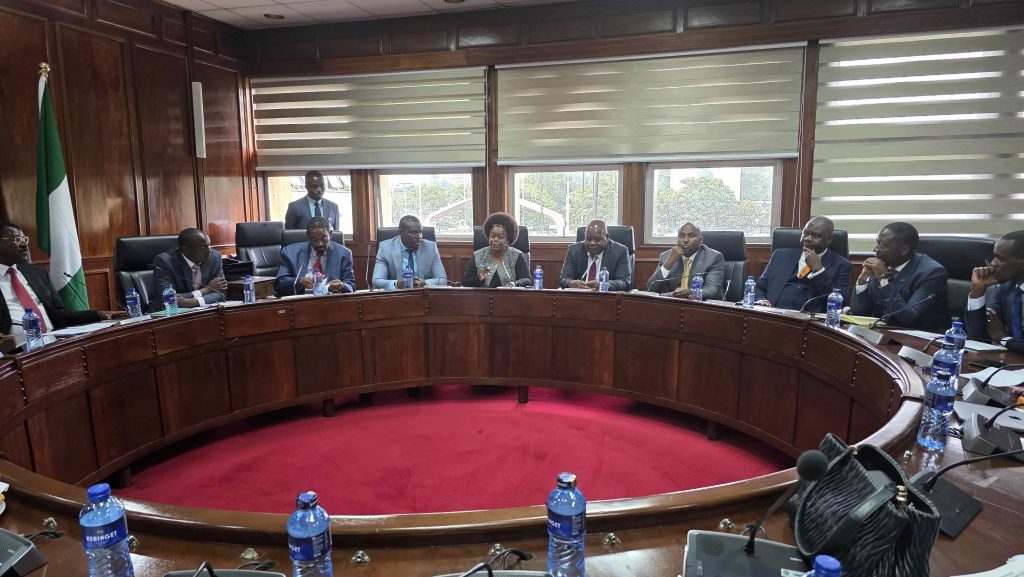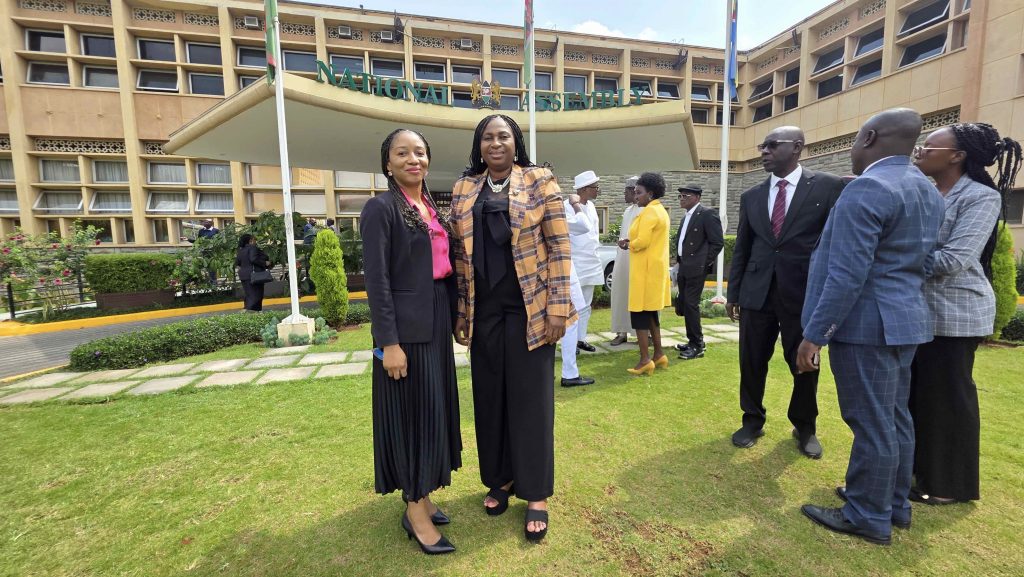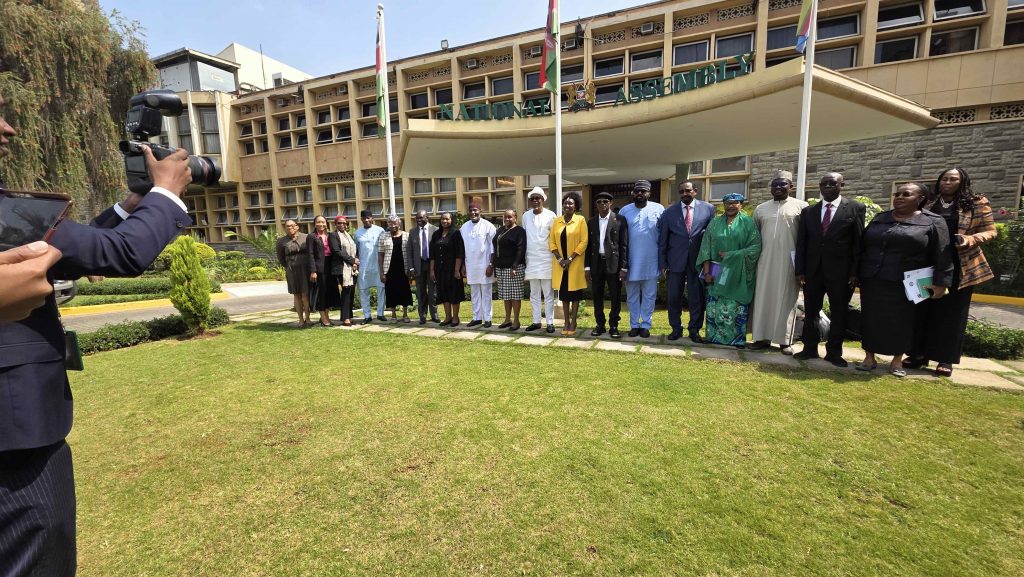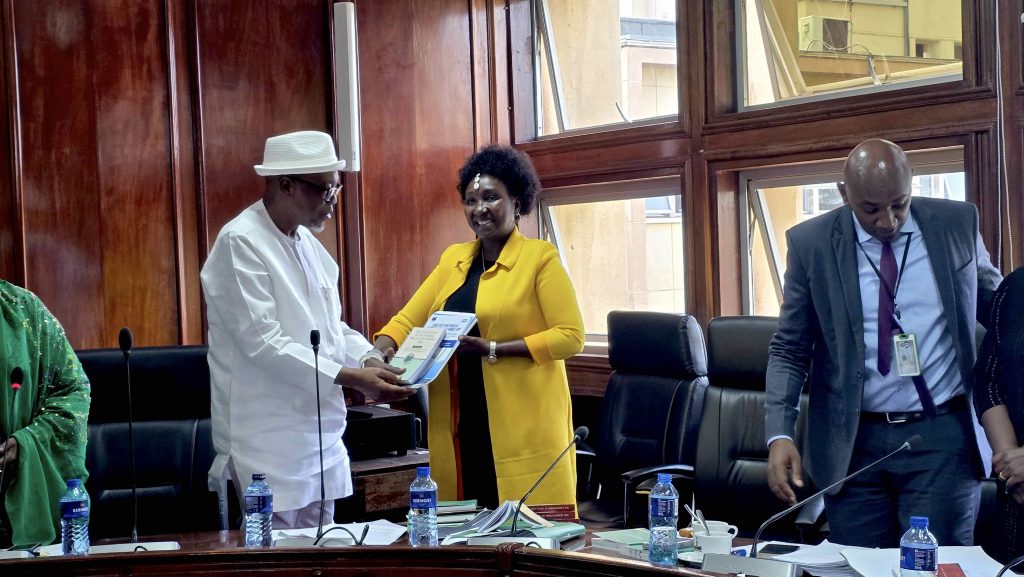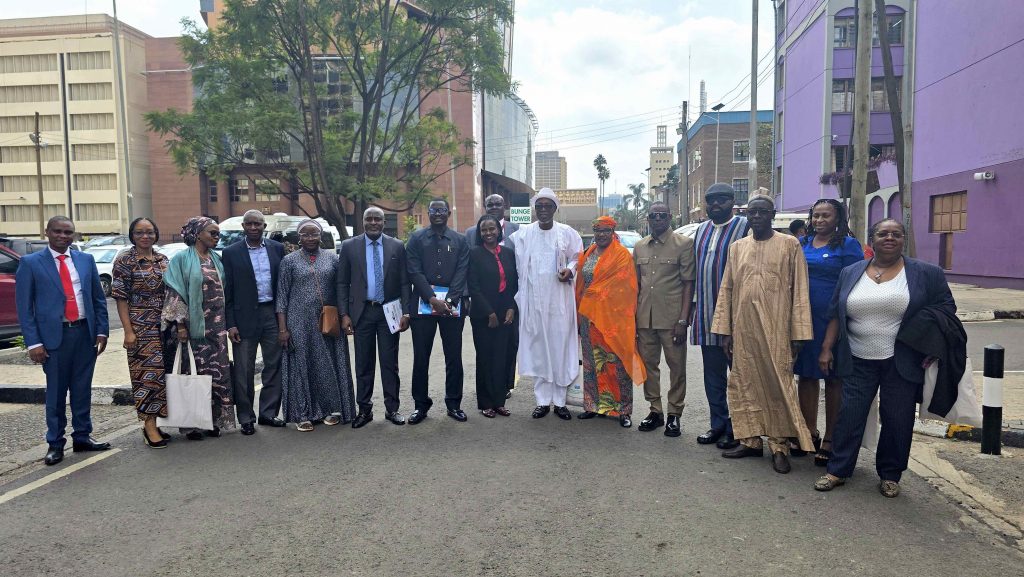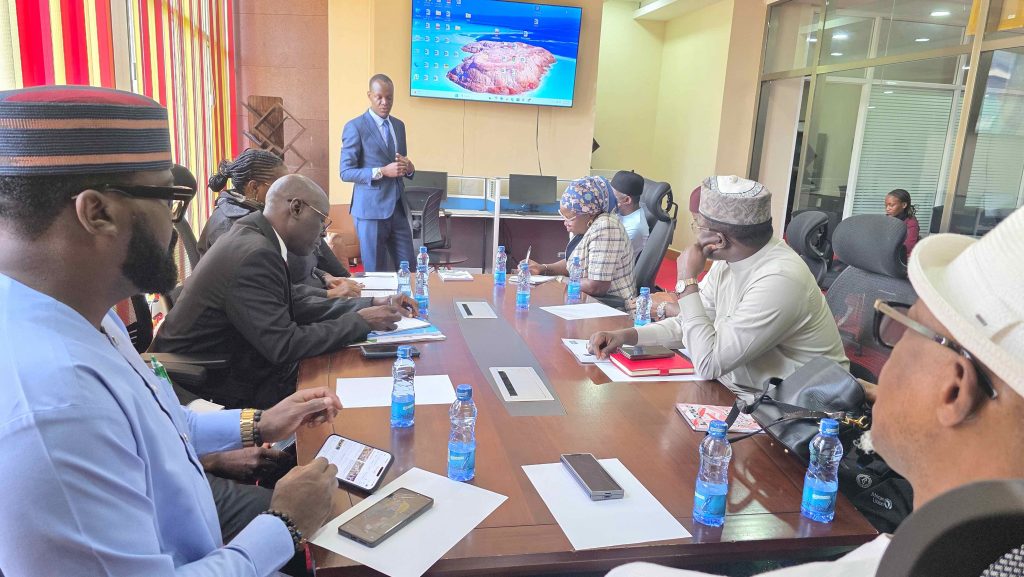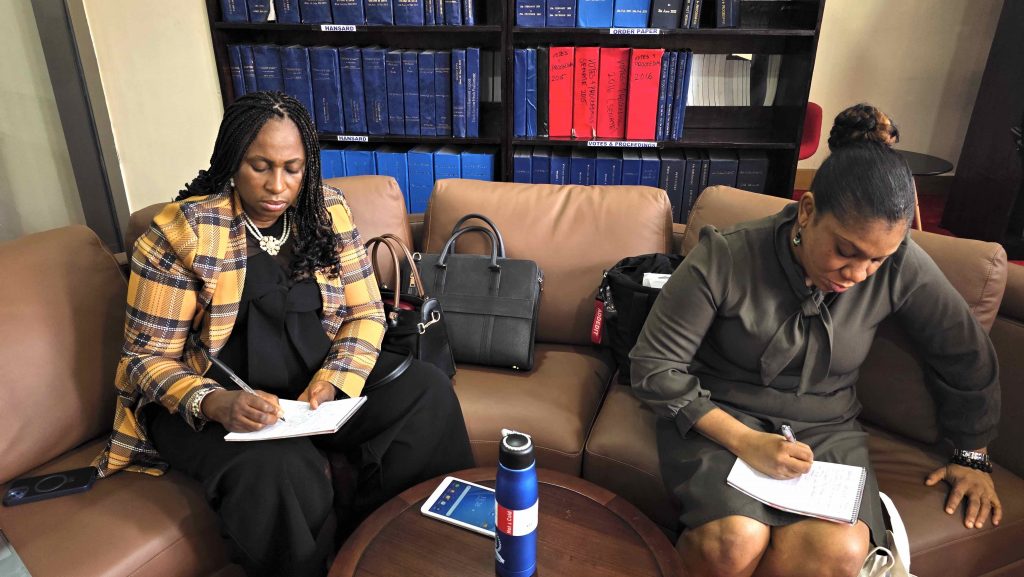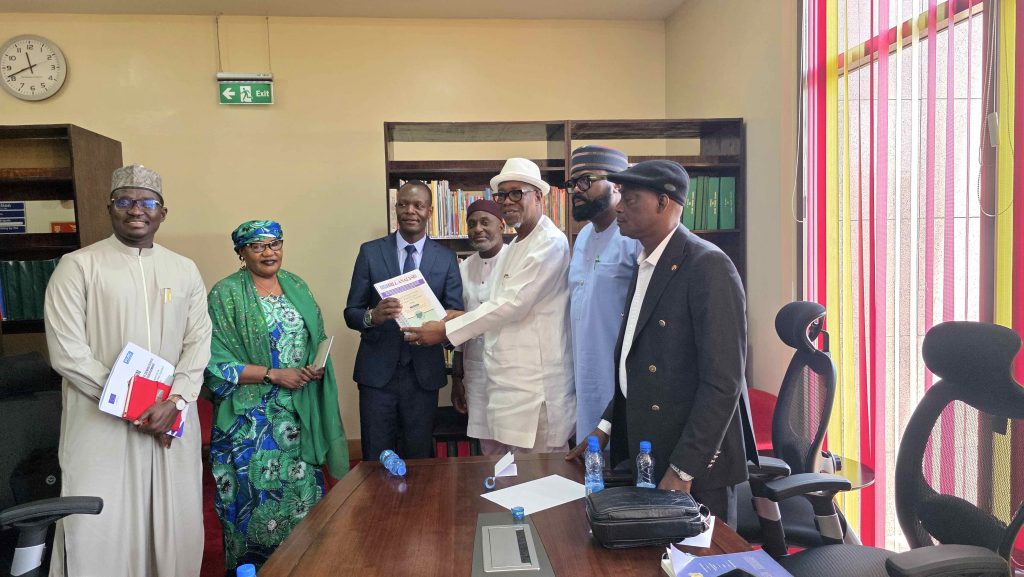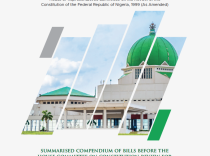Monday, 23rd – Thursday, 26th June 2025
The Policy and Legal Advocacy Centre (PLAC), with support from the European Union (EU), facilitated a study tour for select members of the House Committee on Constitution Review of the Nigerian National Assembly to the Parliament of Kenya.
- The primary objectives of the study tour were to:
Increase awareness of special or affirmative action measures to enhance women’s representation in parliament. - Deepen Nigerian legislators’ understanding of the legal mechanisms through which Kenya has improved women’s legislative representation.
- Foster legislative dialogue and peer learning on advancing women’s representation in the National Assembly.
- Strengthen political will among Nigerian lawmakers to support the passage of the Special Seats Bill.
During the tour, the Nigerian delegation, led by the Majority Leader of the House of Representatives, Hon. (Prof.) Julius Ihonvbere, held high-level engagements with the Speaker of the National Assembly of Kenya, Rt. Hon. Moses Wetang’ula; the Deputy Speaker, Hon. Boss Gladys Jepkosgei; other parliamentary leaders and members; the Kenya Women Parliamentary Association (KEWOPA); and the Federation of Women Lawyers (FIDA) Kenya.
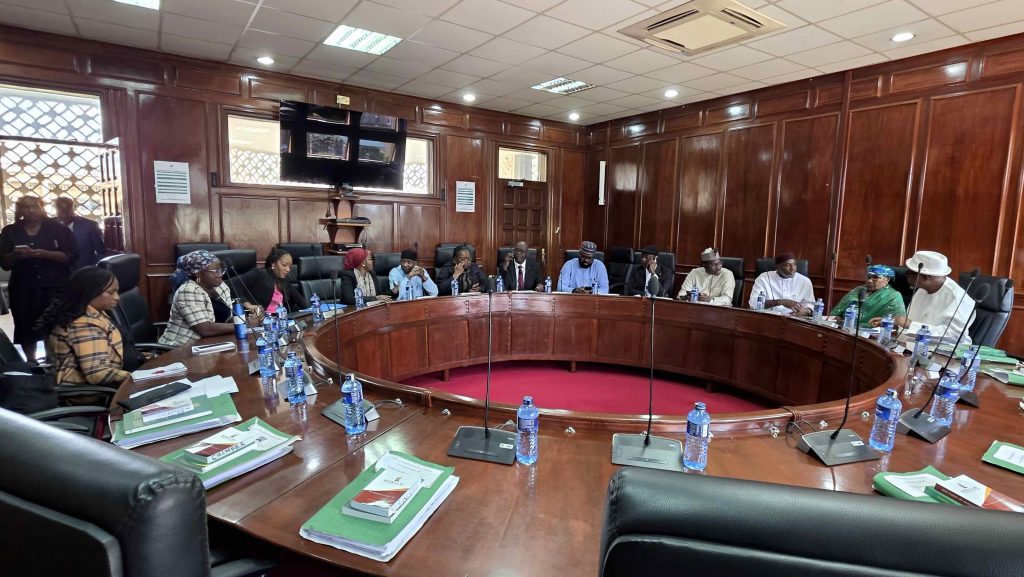
In a meeting with the Speaker, Hon. Julius Ihonvbere, reaffirmed Nigeria’s commitment to reforming its legislative framework to address socio-political barriers, including entrenched patriarchal norms, political party gatekeeping, and unfulfilled commitments to gender inclusion.
Reflecting on Kenya’s experience, the Speaker of the Kenyan National Assembly emphasised that the journey toward expanding women’s representation had been long and challenging as in 1992, only three women were elected to the Kenyan National Assembly. However, through sustained advocacy and persistent pressure from civil society and gender-focused organisations, women’s interests were successfully integrated into the constitutional and legislative frameworks.
A pivotal milestone in this progress is Article 27(8) of the 2010 Kenyan Constitution, which provides:
“The State shall take legislative and other measures to implement the principle that not more than two-thirds of the members of elective or appointive bodies shall be of the same gender.”
This provision—commonly referred to as the “two-thirds gender rule”—establishes a broad constitutional commitment to gender parity across all elective and appointive bodies.
Separately, Kenya’s adoption of a devolved system of government under the 2010 Constitution introduced 47 special seats exclusively for women, one from each county. These seats were created as an affirmative action measure to guarantee minimum representation for women within the National Assembly in the context of devolution, and are distinct from the two-thirds gender rule.
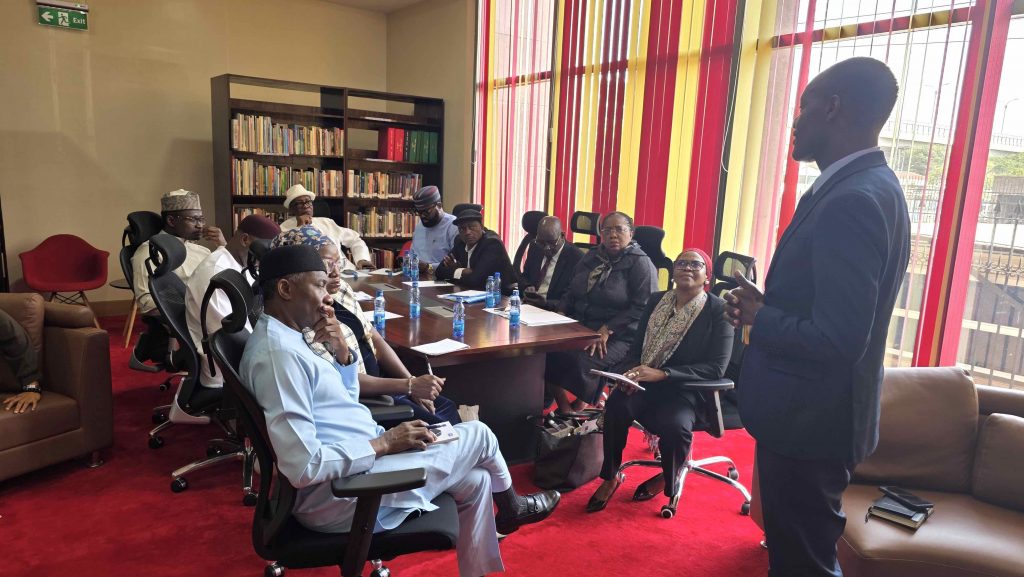
As a result of these combined measures, the Kenyan National Assembly currently comprises 82 women out of 349 members (47 county women representatives elected under affirmative action to reserved seats, 29 elected from single-member constituencies, and 6 nominated). In the Senate, 21 of 66 members are women (3 elected and 18 nominated).
Despite these notable achievements, the full implementation of the two-thirds gender rule remains a continuing challenge, particularly in the National Assembly, where women still account for less than one-third of members.
Direct nominations and reserved seats have proven to be among the most effective strategies to increase women’s representation, given the structural and cultural obstacles female candidates face in competitive elections.
The Nigerian delegation commended the Kenyan Parliament for its openness and willingness to share valuable lessons that could inform Nigeria’s path toward inclusive constitutional reforms.
Kenya was chosen for this study visit because its 2010 Constitution is widely recognised for its progressive gender provisions. Article 27(8) serves as a clear constitutional mandate for adopting Special Measures to promote gender balance in political representation.
While Kenya and Nigeria differ in size and constitutional design, they share common characteristics, including a dominant presidential system, a first-past-the-post electoral system, and deeply rooted patriarchal norms influencing women’s political participation.
Moreover, Kenya’s ongoing efforts to fully realise the two-thirds gender rule offer Nigerian lawmakers a timely opportunity to learn from both the successes and the implementation challenges of reserved seats and affirmative action measures.
In essence, Kenya provides a compelling case study of how constitutional and legislative measures can be leveraged to advance gender parity and strengthen democratic representation.
Overall, the study tour provided an opportunity for Nigerian legislators to engage directly with peers navigating similar political and cultural contexts. The lessons learned will help inform Nigeria’s efforts to advance inclusive constitutional reforms and build consensus around the Special Seats Bill.
More pictures from the trip


